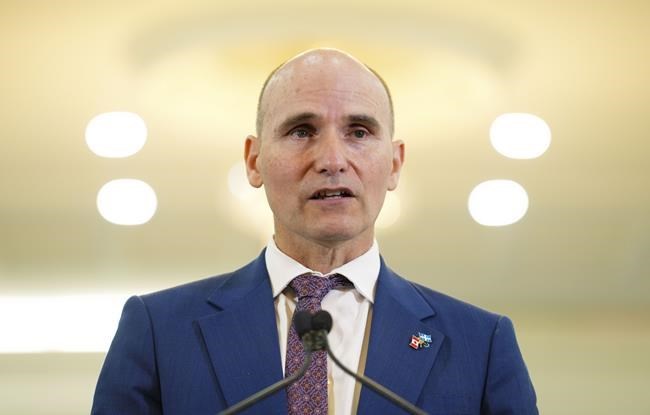OTTAWA — The federal government has asked the private sector to weigh in on how companies could play a role in Canada's national dental-care plan.Â
The Liberals set aside $5.3 billion over the next five years to launch a dental-care program for uninsured low- and middle-income families.Â
The have committed to starting with kids under the age of 12 in households with an annual income of less than $90,000 by the end of this year, with plans to extend coverage to under-18-year-olds, seniors, and persons living with disabilities in 2023.
The program is a key part of the confidence and supply deal the Liberals signed with the NDP to stave off a potential election until June 2025.
NDP health critic Don Davies said in a statement that the two parties recently agreed on an implementation plan for national dental care that includes learning from "stakeholders with expertise in claims processing."
The government issued a formal request for information, seeking input from industry players between now and Aug. 22.
"Canada is exploring different models to deliver on this commitment — including a federal direct delivery option, whereby Health Canada would deliver the program itself with the support of one or more third-party benefits providers," the government said in the document.Â
The government could also give cash to the provinces along with a list of coverage they have to provide.Â
Health Minister Jean-Yves Duclos reiterated that the government hasn't yet settled on which form the program will take. The responses from various companies, along with consultations with provinces and territories, will inform federal decisions about how to proceed, he said.
The NDP and Liberals agreed the program would be expanded to include all uninsured family members under the $90,000 income threshold before the term of the deal runs out.
In the request-for-information document, the government estimates seven to nine million Canadians would be eligible for the program once it's fully phased in. If the Liberals contract the program out to a private firm, there would be a six-month startup phase between when the contract was awarded and when it would begin.
That would make it impossible for the Liberals to meet the end-of-year deadline to fulfil their promise to the NDP in the confidence and supply agreement between the two parties.
In the document, the government asks companies to explain whether they have the capacity to handle claims from the millions of Canadians who will qualify for coverage.Â
The Liberals also want to know if an "off-the-shelf" insurance plan already exists that the government could adapt to suit its needs, and how quickly that could come together.
The document asks companies to answer key questions, like what basket of services should be covered and how the program would be best delivered.Â
The government has also solicited advice about how to handle the complicated industry landscape, which includes provincial and territorial programs and private insurers.Â
This report by The Canadian Press was first published July 25, 2022.
Laura Osman, The Canadian Press




